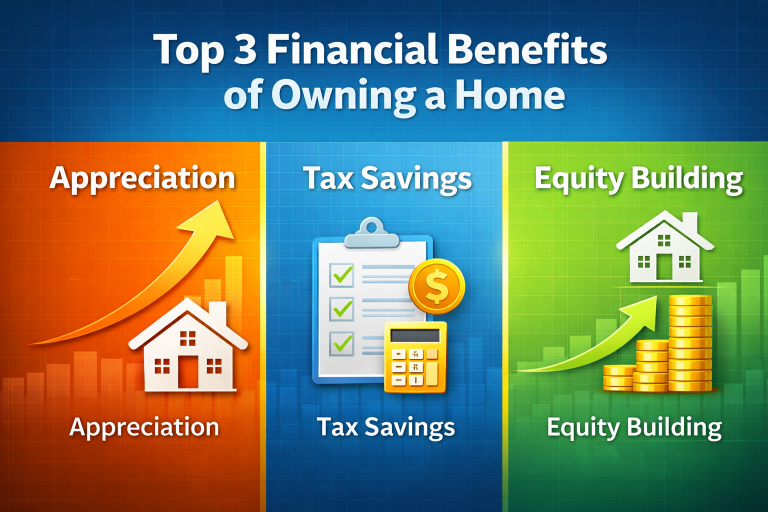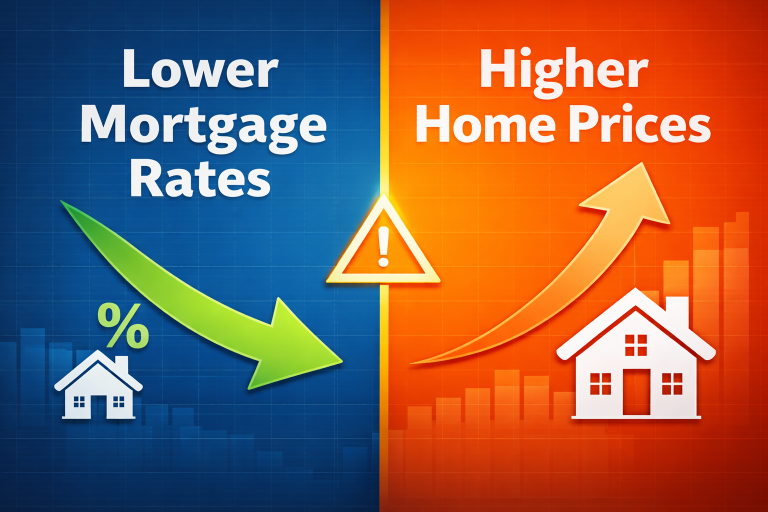Should You Sell Your Home or Keep It as a Rental?
When you’re thinking about buying a new home and you already have a mortgage on your current property, it’s a big financial and emotional decision. Maybe your current home has become too small, there’s a lot of road noise, or your growing family simply needs more space. But there’s a twist—you’ve got a great mortgage. Maybe you locked in a super low interest rate years ago, something like 2.875%, and your monthly payment is incredibly affordable. That kind of loan is hard to walk away from.
Let’s say you could sell your home today and walk away with $300,000 in net proceeds. That’s a strong down payment for your next property. But the moment you do that, you’re not just giving up a house—you’re also giving up that rock-bottom interest rate, future equity growth, tax benefits, and the potential for passive income if the home were turned into a rental.
And here’s the kicker: the payment on your new home is going to be higher no matter what. Not just because today’s interest rates are higher, but also because home prices and property taxes have risen.
So the real question becomes: Is it worth selling your current home just to get a slightly lower monthly payment on the new one?
This is Where Strategy Comes In
Instead of selling, what if you rented out your current home and used the income to support your long-term financial picture?
Think about this: even if your new home will come with a higher mortgage payment, that’s going to be the case whether you sell your old home or not. What you’re gaining by keeping the original property is:
-
Long-term tax deductions
-
The opportunity to generate rental income
-
The option to hold onto an appreciating asset
If your current home could rent for around $3,000 a month, and you hired a property manager at 6%, that’s $180 per month to have someone else manage the property. No tenant calls, no weekend repairs, no extra stress. That small fee buys back your time so you can focus on your new home, your family, or your career.
Yes, keeping your current home as a rental while buying a new property does mean taking on a larger monthly obligation for a time. But remember: this is an investment in your future balance sheet.
Owning two properties—even if one only breaks even or cash flows modestly—puts you in a stronger long-term position. And it doesn’t have to be forever.
Flexibility for the Future
Let’s say a couple of years go by and you decide that being a landlord isn’t for you. No problem. If you’ve lived in the property for two of the last five years, you can sell it and:
-
Exclude up to $250,000 in capital gains from your taxes (if you’re single)
-
Exclude up to $500,000 (if you’re married filing jointly)
On the other hand, if you’d rather hold it as an investment and sell later, you could do a 1031 exchange. That allows you to roll the equity into another income-producing property without triggering capital gains taxes—and that next rental could have even stronger cash flow.
Real Wealth Comes From Smart Decisions
This is the kind of planning that builds real wealth. It’s not about chasing the lowest rate or the lowest payment—it’s about designing a home financing strategy that supports both your short-term needs and your long-term goals.
When done right, the decision to keep your current home as a rental can open doors to:
-
Future opportunities
-
Stronger financial stability
-
Increased net worth
The reality is that in real estate, wealth isn’t always built when you sell—it’s built when you buy smart. And buying a new home while holding onto your existing one is one of the smartest moves you can make if it fits your financial picture and lifestyle.
The Right Plan Makes It Possible
It does require planning, clear budgeting, and a lender who can help you structure everything correctly—especially when it comes to using rental income to qualify for the new loan or deciding how much of a down payment you can afford without selling. But with the right guidance, it’s completely doable.
So if your current home no longer fits your lifestyle, but your low payment and strong equity position have you wondering whether to sell or rent it out, let’s talk. I can walk you through the numbers and help you make a decision that aligns with your goals—not just today, but five, ten, even twenty years down the line.
Looking to get a loan? Get a free quote today!
Share:
Posted in: 1031 exchange, Santa Rosa mortgage expert, Scott Sheldon mortgage, buy and hold real estate, capital gains tax, home buying guidance, home financing strategy, keep existing mortgage, mortgage planning, move-up buyers, owning multiple properties, real estate investing strategy, real estate wealth, rental income strategy, renting out your home, selling vs renting
RELATED MORTGAGE ADVICE FROM SCOTT SHELDON
Building on Land or Manufactured Homes – The Hidden Costs You Need to Know
For many buyers, the idea of buying a vacant parcel of land and building their…
The Only Two Real Obstacles in the Loan Process: Credit/Income and Appraisal
For many homebuyers, getting a mortgage can feel like navigating a maze of paperwork and…
View More from The Mortgage Files:
begin your mortgage journey with sonoma county mortgages
Let us make your mortgage experience easy. Trust our expertise to get you your best mortgage rate. Click below to start turning your home dreams into reality today!



